20+ Sample Notice of Rent Increase
-
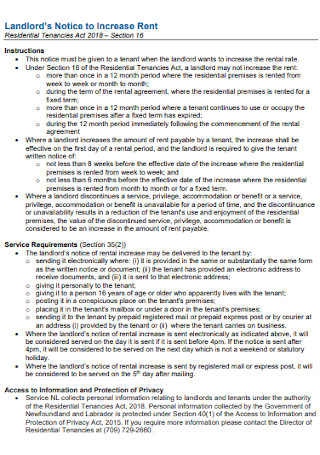
Landlords Notice to Increase Rent
download now -
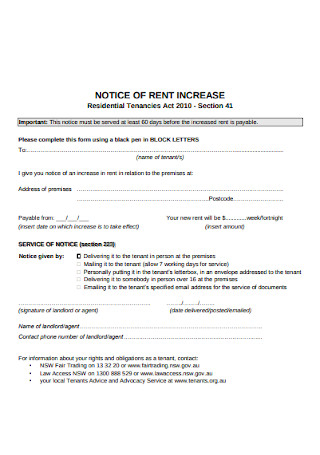
Residential Notice of Rent Increase
download now -
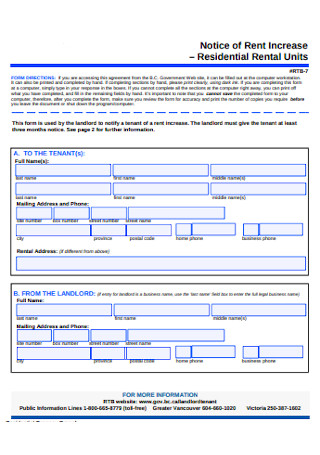
Notice of Rent Increase of Residential Units
download now -
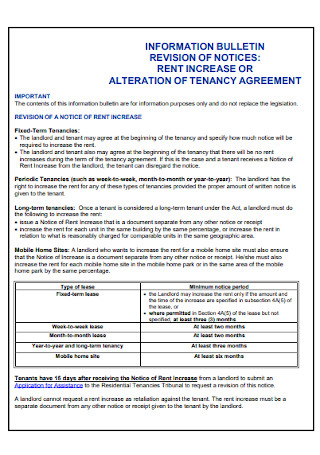
Notice of Rent Increase Agreement
download now -
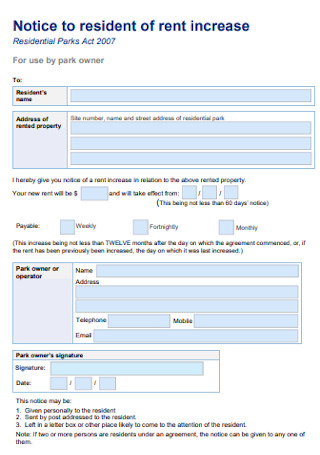
Notice to Resident of Rent Increase
download now -
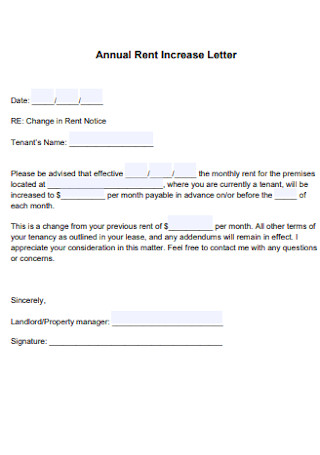
Annual Rent Increase Letter
download now -
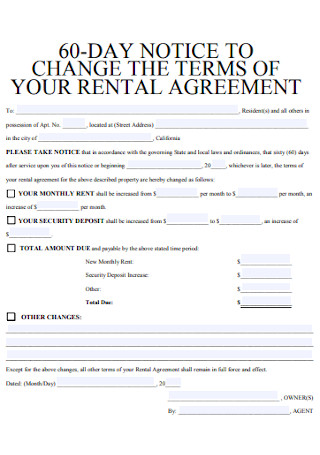
60 Day Notice of Rent Increase
download now -
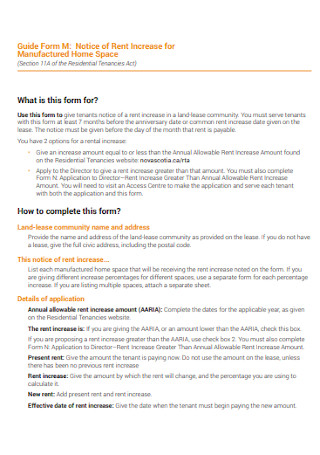
Notice of Rent Increase for Manufactured Home
download now -
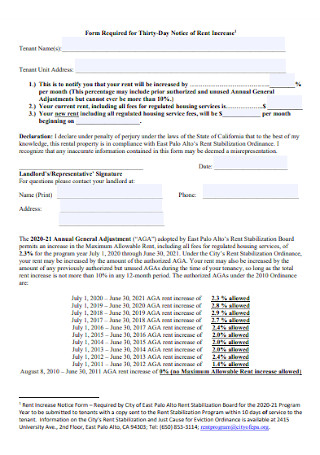
Thirty-Day Notice of Rent Increase
download now -
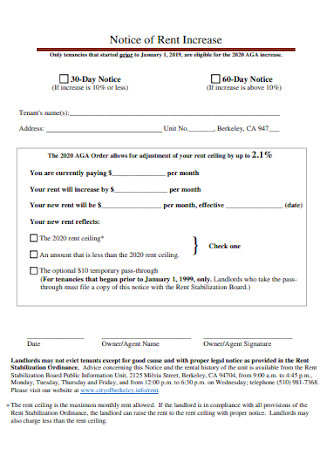
Notice of Rent Increase Format
download now -
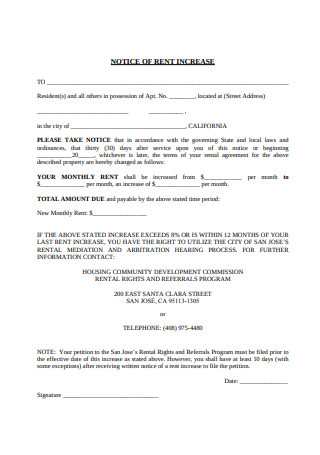
Formal Rent Increase Notice
download now -
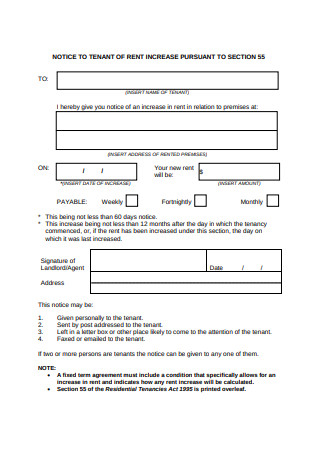
Notice to Tenant of Rent Increase
download now -
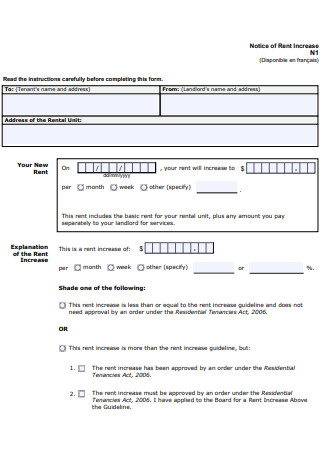
Notice Rent Increase Form
download now -
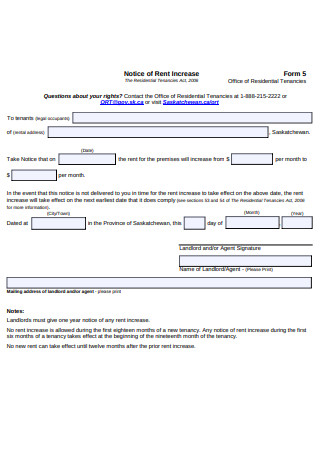
Basic Notice Rent Increase
download now -
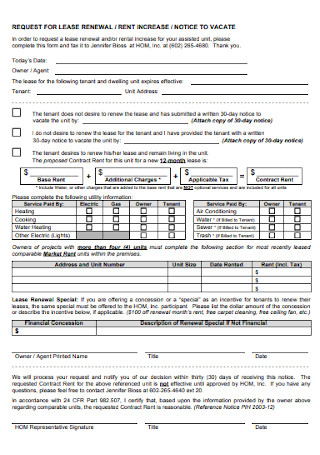
Notice to Rent Renewal Increase
download now -
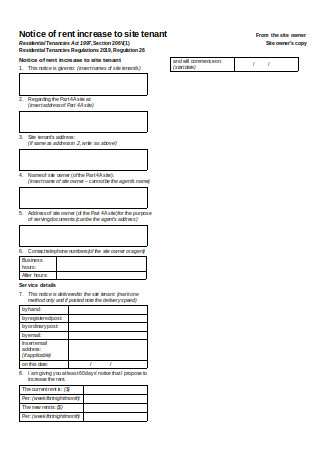
Notice of Rent Increase to Site Tenant
download now -
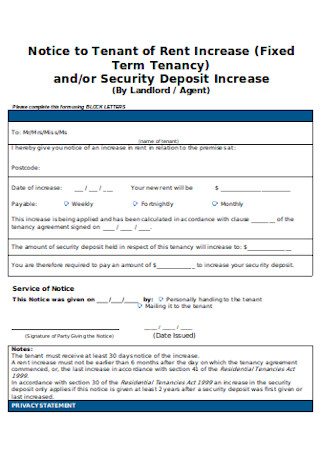
Notice of Rent or Bond Increase
download now -
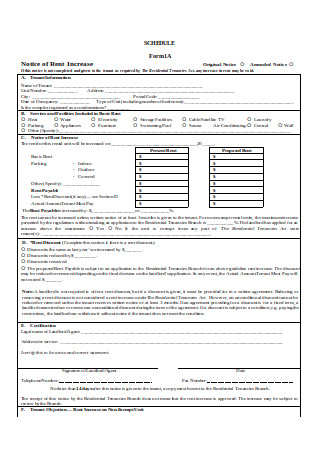
Sample Rent Increase Notice
download now -
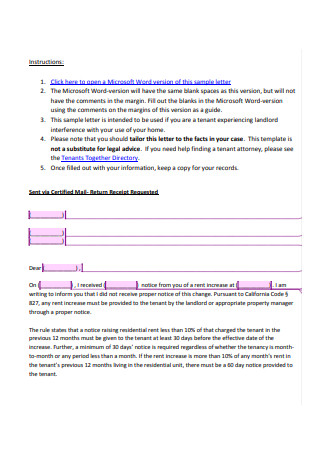
Improper Notice of Rent Increase
download now -

Notice to Tenant of Rent Increase
download now -
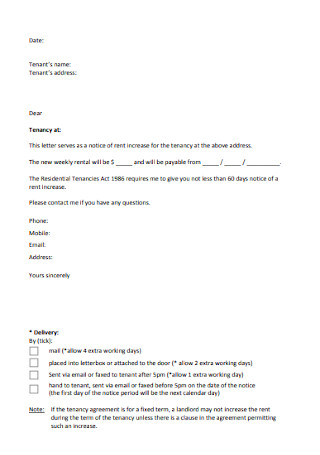
Rent Increase Notice Letter
download now -
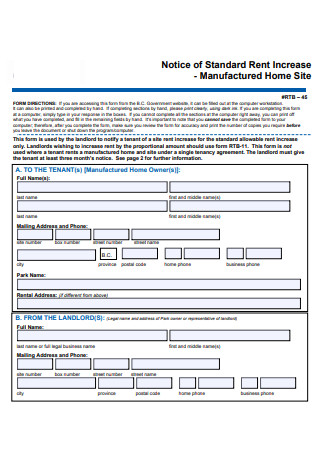
Standard Notice of Rent Increase
download now
FREE Notice of Rent Increase s to Download
20+ Sample Notice of Rent Increase
What is a Notice of Rent Increase?
What Landlords Must Know Before Giving Notice of Rent Increase
How to Write a Notice of Rent Increase?
FAQs
1. Can you email a notice of rent increase?
2. What are the reasons for Increasing rent
3. When can you NOT increase the rent?
What is a Notice of Rent Increase?
A notice of rent increase is a written letter sent by the landlord to the tenant informing them of a change in the amount of money to pay as the amount of rent. Other related terms for this include: notice of rent increase letter, notice of rent increase form, and letter to tenant increasing rent.
What Landlords Must Know Before Giving Notice of Rent Increase
There are specific measures landlords must take in order to raise the rent, which are intended to safeguard tenants against unreasonable and unjustified increases.
How to Write a Notice of Rent Increase?
Step 1: Name of the Tenant
Place the name of the person to whom the notice is for because you may have a big property and the wrong person might receive the notice that would cause some confusion.
Step 2: Address of the property rented
If you, as a landlord, has a lot of properties, you should specify which ones you are increasing the rent to. Put the entire address and you may also be any more specific than that.
Step 3: Name of the landlord and contact info
There should also be the name and the contact information of the landlord for the cases that the tenants would verify if it’s really the landlord that gave them notice and to attend to their questions about why there is an increase.
Step 5: Date written
Write the date of when the notice was written because this is to know that the notice was written before the lease and there should be an allowance of days, depending on your state’s law, for the tenant to prepare for the next move. They either agree or they find another place to move.
Step 6: Date of effect
Write the date of when the increase will take effect and make sure that it is not the actual date that the tenant receives the notice. This might shock them plus this is illegal.
Step 7: Amount increase
Specify the amount of increase apart from the total amount to give a clear calculation of how much the amount of increase is.
Step 8: Current amount
Also specify the current amount after the increase, break the amounts down to give a clear calculation of how much the new amount after giving notice of rent increase.
Step 9: Tenant’s decision
Make a place for the choice of the tenant – whether they would submit to the increase or they would decline and find another place to stay. There should be place for a tenant’s reply to a notice of rent increase
Step 10: Signatures
Always put the signatures of the tenant and the landlord. This is an important part and indicates that there is an understanding and to make the notice valid.
FAQs
1. Can you email a notice of rent increase?
If the lease allows, email can be used to convey a rent increase notice in several states. While it is easy, it is difficult to ensure that your renter got and opened the email.
2. What are the reasons for Increasing rent
Some of the reasons a landlord may increase rent are when there is an increase in property taxes, increase in the cost-of-living, increase in insurance premiums, increase in homeowner association fees or condo fees and annual inflations.
3. When can you NOT increase the rent?
You cannot increase the rent if the lease has not expired, and an increase is not permitted, In accordance to state and municipal rules, adequate advance notice was not provided, local rent control or rent stabilization regulations are broken, tenant retaliation for requesting repairs or reporting a housing code violation, discriminating against tenant because of his or her ethnicity, religion, or sexual orientation, and lastly, the landlord raises the rent in bad faith fording the tenant to move out.
You are the only one who can make this decision in knowing whether or not it is worthwhile to put in the effort to become a landlord. Simply look before you leap, and go into your new venture with reasonable expectations and a strong game plan. You’ll be more prepared for what you’re putting yourself into and more likely to appreciate the experience if you know what you’re getting yourself into before you do it.
